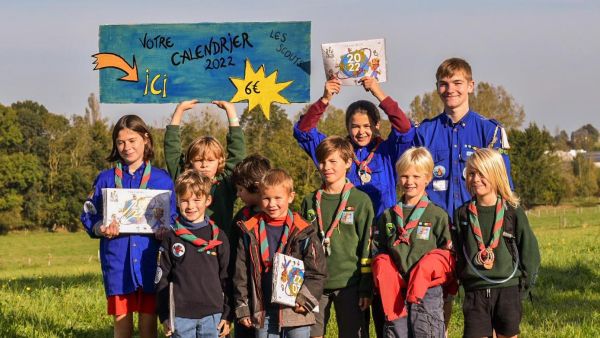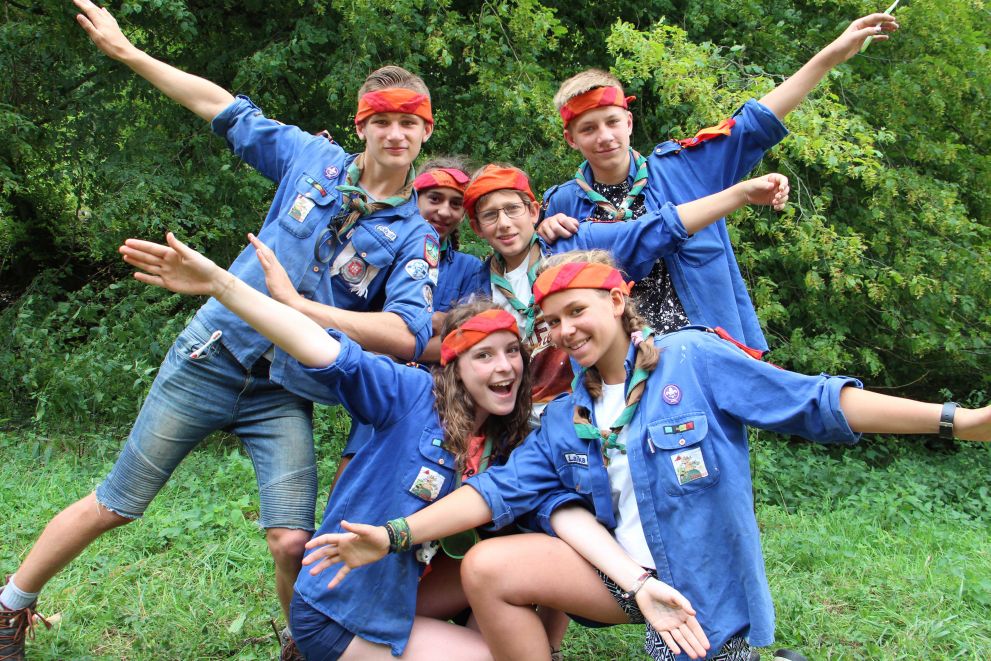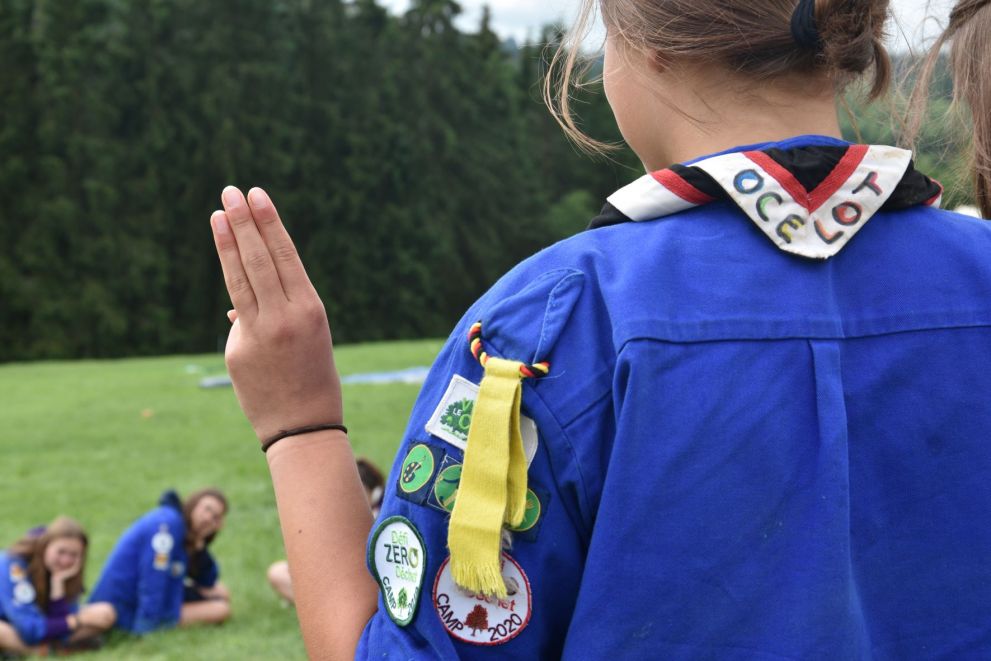Our pedagogy
Standards for Scout leadership
In order to fulfil its mission, Scouting is lived out in accordance with three essential standards throughout the world. All Scouts around the world pursue a specific goal, in a specific way and are guided by specific values.
Our tenets inspire the educational proposal implemented in our federation. The Scouting approach that we promote relies on three milestones.
The Promise
I wish, in my soul and conscience, to join the world Scouting fellowship, to make the world a better place and to take part in building peace.
Through my personal, social, and spiritual development, I pledge to live out, to the fullest and every day, the values of the Scout Law.


Our values
The Scout Promise and Law
The Scout Law that is expressed in their own words by all the associations affiliated to the WOSM, is not a regulation as such but a roadmap towards the achievement of an ideal. It embodies values lived out in the group and aims not only at the collective best interest, but also at the individual development of each Scout.
The Scout Law
- A Scout is trustworthy and deserving.
- A Scout commits himself/herself close to home.
- A Scout serves and acts for a fairer world.
- A Scout shows solidarity and is a brother/sister to everybody.
- A Scout welcomes and respects others.
- A Scout explores and respects nature.
- A Scout tries his best, always.
- A Scout smiles and whistles under all difficulties.
- A Scout is thrifty and shares.
- A Scout respects his body and develops his mind.
Our three tenets
Three pledges are linked to the Scout Promise. They are three tenets, duties or services. They epitomize the possible self-fulfilment of those who develop the potential talents that residie in them: personal - social - spiritual.

Our educational ambition
Scouting encourages the development of certain traits in every young person. We thus set out to contribute to the education of men and women:
- Self-reliance and freedom: To actively build one’s personal balance by assuming one’s character, tastes and choices;
- Self-confidence: To be able to develop one’s own qualities, to make one’s personal choices and to grow into being true to oneself, to be willing to meet others without negative preconceptions;
- Sociability: To develop genuine and rewarding relationships with others;
- Sense of solidarity and partnership: To be willing to live with others, to dare be different and equal at the same time, to build with others and to pledge to guaranteeing others the means to lead a life of freedom and self-reliance;
- Awareness and critical mind: To know one’s limits and capabilities, to be accountable;
- Inner life: To develop one’s spirituality and to endorse values that broaden the horizon;
- Balance: To think, talk and act with consistency.
- Involvement in the community: every Scout is involved in a variety of communities. This commitment takes the form of service activities that help to improve the community and enable Scouts to grow and learn. Aware of the skills they acquire through Scouting, Scouts identify the contributions they can make to the places where they are involved, now and for the rest of their lives.
Our method
The method we use to achieve the objectives of Scouting is based on eight elements. There are adjusted to the age of the Scouts so that they can be the actors of their own development.
- The relationship: Each head of unit, through his/her commitment as a volunteer, develops a relationship with the children, he/she will listen, share with the children, show respect and trust and help them grow.
- The action: Young people learn and grow through games, workshops, service activities and other activities. These actions are, in most cases, thought through with the young individuals.
- The small group: Life in a small group offers the Scouts an ideal place to discover themselves and others. Everyone can learn to become accountable and supportive in a confident way.
- The exploration: Throughout the many activities and projects, each Scout ventures out on his own exploration. He/she becomes aware of what they learn and becomes eager to learn more.
- The Law and the Promise: Throughout their journey, the Scouts discover the values of the Scout Law. They take ownership of these values, draw inspiration from them and pledge to live them out.
- The symbols: A set of meaningful words, gestures and rituals symbolically epitomize the values of Scouting, those rites reinforce the sense of belonging to a worldwide movement. Some elements of those symbolic rites are the legacy of the rich history of the Scout movement while others are linked to an imaginary framework or the own construct of a group.
- Nature: Through outdoor life, Scouts put their own dimensions and limits to the test. Nature is full of challenges and opportunities to share exciting or difficult moments, wonderful experiences and spiritual discoveries. Scouts also learn to respect the environment.
- The community involvement: All Scouts will have the opportunity to get involved in a variety of communities. This involvement takes the form of service activities which contribute to the improvement of the community and which carry many learning and growth opportunities for Scouts. Scouts are aware of the skills they acquire thanks to the movement and understand the difference they can make, now and in the future, every time they get involved.
